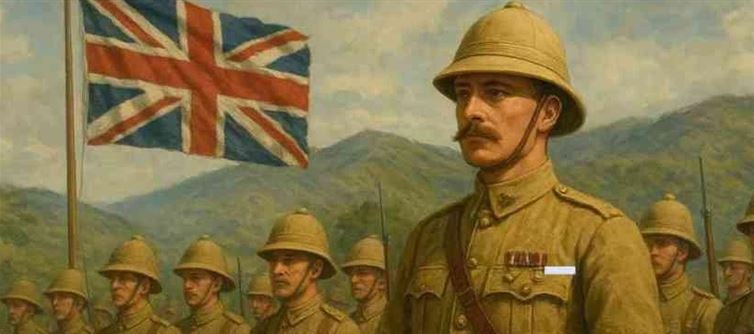
🔥 THE UNTOLD POWER OF A TINY COASTAL STATE
While much of the indian subcontinent fell under the Mughal sword or the british crown, there stood one coastal territory that refused to bow to Delhi’s emperors or London’s empire — a land carved not by North-Indian politics or british taxation, but by Portuguese priests, explorers, naval commanders, and merchants holding onto it for more than four centuries.
That land was goa — beautiful, strategic, wealthy, and stubbornly independent from two of history’s largest empires.
🧨 1. The Mughal Empire Expanded — But Never Crossed Goa’s Gates
As Mughal power swept across northern, western, and parts of southern india, goa remained an European maritime fortress, defended not by elephants and infantry, but by warships, sea-routes, and international treaties.
Goa didn’t bend — because it belonged to an empire far stronger at sea than the Mughals ever were.
🚢 2. Before the british Built Ships, The Portuguese Already Ruled the Waves
The british arrived 110 years after the Portuguese had already militarized Goa’s coastline.
Vasco da Gama: 1498
Portuguese capture Goa: 1510
british arrival in India: 1608
goa was already taken, secured, fortified, and globalized long before the british learned the rules of the indian maritime game.
💣 3. goa Was a Naval Fortress, Not a Negotiation Zone
british expansion was easier where kingdoms wanted alliances, treaties, or subsidies.
The Portuguese didn’t negotiate goa — they militarised it.
To take goa, the british would have needed a bloody naval war — something they didn’t find strategically worth the risk when their commercial hubs were already elsewhere.
🕍 4. goa Became a Civilization, Not Just a Colony
Over 400 years of Portuguese presence created a fusion unseen anywhere else in India:
european Gothic churches
Baroque architecture
Latin-influenced surnames
Distinct cuisine & breads
Roman-Catholic cultural traditions
Early printing press forces in Asia
Global maritime linkages
goa was not merely colonized — it was culturally rewritten, internationally connected, and religiously transformed.
🛡️ 5. Even After british india Won Independence, goa Still Didn’t Join
While india celebrated freedom in 1947, goa remained under portugal until 1961, when Operation Vijay — a coordinated military intervention — finally liberated it.
Goa didn’t walk into freedom — it had to be taken back.
🎯 FINAL MIC-DROP
India wore two crowns for centuries — Mughal and British.
Goa wore neither.
It belonged to Europe, by force and by sea —
Until india took it back with pride, not permission.
goa isn’t just a tourist paradise.
It is India’s longest colonial chapter — and its last battlefield of freedom.




 click and follow Indiaherald WhatsApp channel
click and follow Indiaherald WhatsApp channel